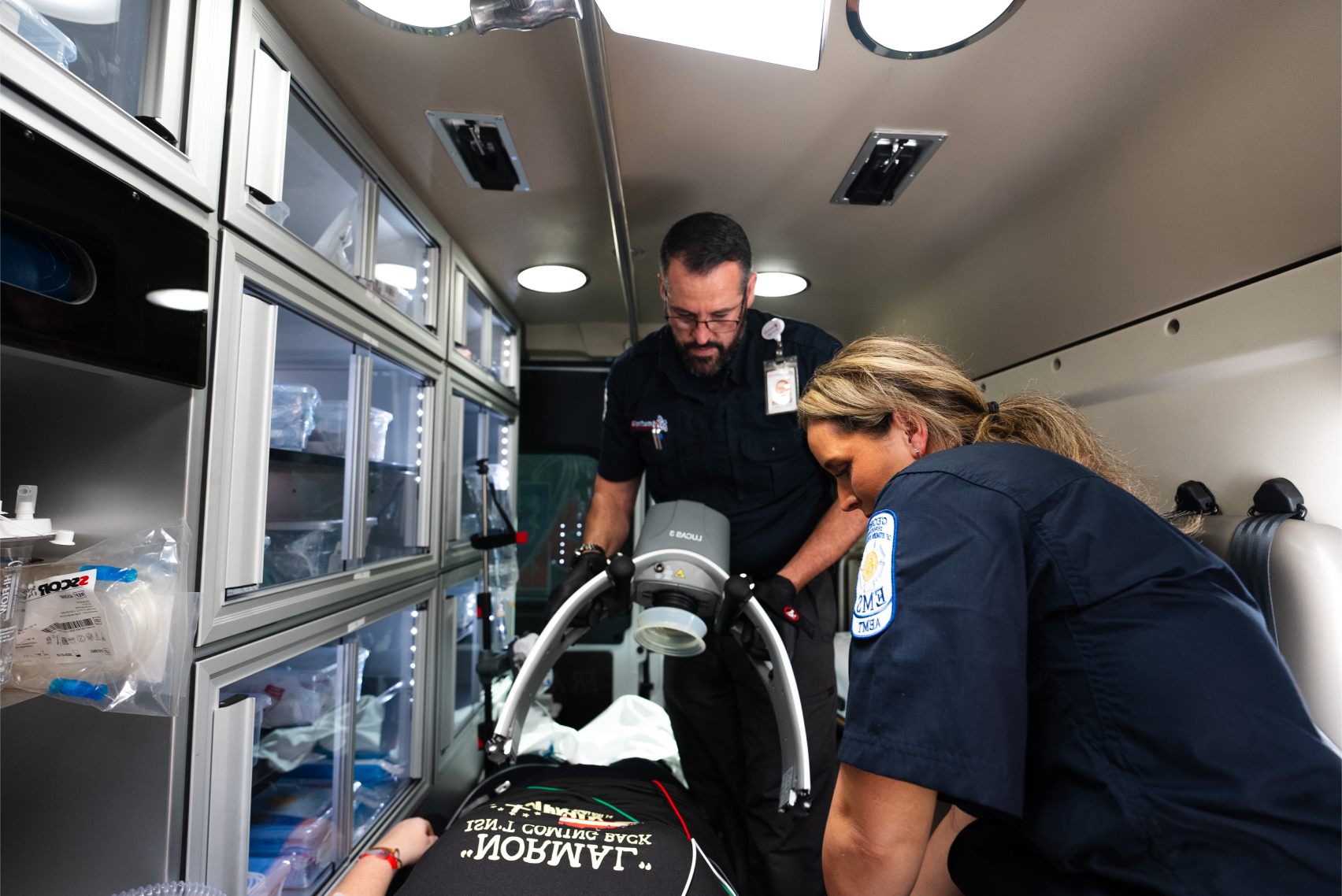
Long gone are the days of worrying about resource allocation during ambulance transport, stair carries, or mass casualty incidents when you work at AmeriPro. We are an advanced Emergency Ambulance Services company using the latest technology and advancements that save lives.
AmeriPro believes Lund University Cardiac Assist System (LUCAS) devices represent a leap forward in EMS medicine by ensuring quality, consistency, and operational flexibility in resuscitative care—ultimately improving survival rates and preserving brain function in cardiac arrest patients. The LUCAS device transforms the way cardiopulmonary resuscitation (CPR) is delivered during cardiac arrest. They contribute to advancing emergency medical care in numerous ways.
Elevating CPR Quality and Consistency
Manual chest compressions often vary due to fatigue, patient movement, or environmental conditions. LUCAS devices provide mechanical, guideline-compliant compressions with consistent rate and depth, improving coronary and cerebral perfusion—key factors in survival and neurological outcomes.
Extending the Reach of EMS Providers
By automating compressions, LUCAS devices free EMS clinicians to focus on advanced life support interventions like:
- Defibrillation
- Airway management
- IV/IO access and medication delivery
This increases the effectiveness and scope of prehospital resuscitation efforts.
Supporting Care in Challenging Environments
Whether during ambulance transport, confined space rescues, austere environments, air medical evacuations, or stairwell extractions, the LUCAS device ensures uninterrupted chest compressions when manual CPR would be difficult, unsafe, or ineffective. By maintaining high-quality compressions in dynamic or physically demanding situations, LUCAS expands the EMS team’s ability to deliver life-saving care even under extreme operational strain.
Enhancing Operational Efficiency
In systems with staffing shortages or extended response times, LUCAS allows a smaller EMS crew to deliver high-quality CPR, optimizing resource allocation without sacrificing care quality.
Improving Patient Outcomes
Clinical studies suggest LUCAS use can lead to better return of spontaneous circulation (ROSC) rates and higher survival with favorable neurological function, particularly when used early and effectively during prolonged resuscitation attempts.
Enabling Advanced Therapies
LUCAS devices can support prolonged CPR during transport to hospitals offering extracorporeal membrane oxygenation (ECMO) or cardiac catheterization labs, bridging patients to definitive care with uninterrupted compressions.

